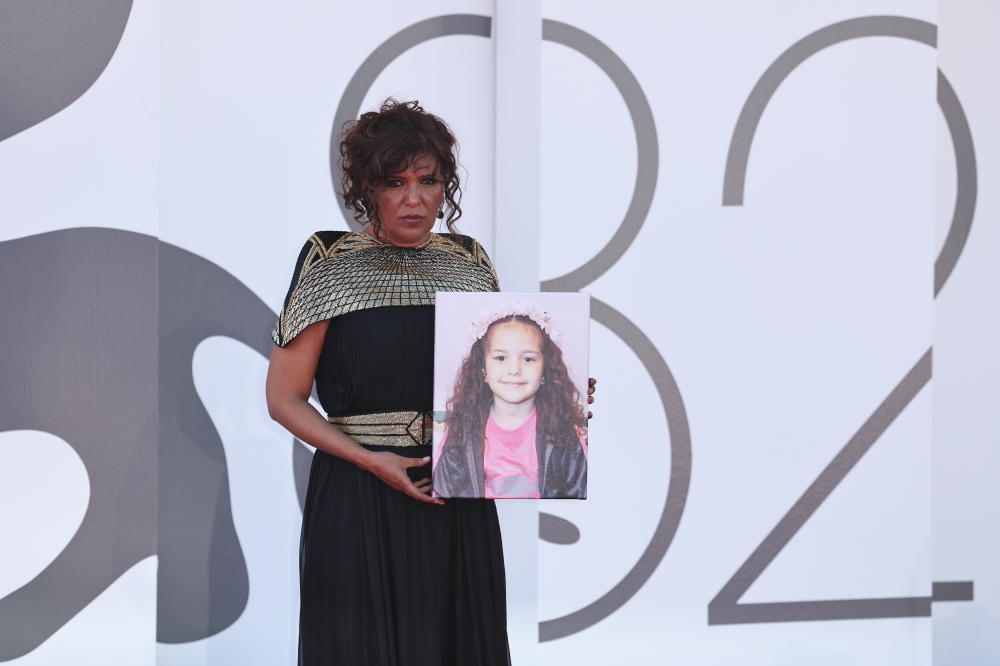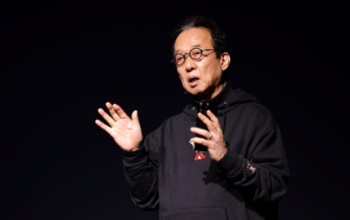It was the irrefutable event of Venice 2025; the most talked about movie of the festival despite the 82nd edition of the world’s oldest film fair being a largely lacklustre affair.
The Voice of Hind Rajab, the seventh feature by two-time Oscar nominee Kaouther Ben Hania, was always going to stir debate.
Except that in September 2025, it did not face the type of resistance that greeted the Oscar-winning No Other Land when it premiered in Berlin in February 2024.
By this time last year, the global public had largely converted to the Palestinian cause.
Millions could no longer justify the sadistic aggression by the Netanyahu regime, the sight of starving Palestinian children has awoken Europeans and Americans.
Unfolding over the course of 24 hours and set entirely in a Palestine Red Crescent Society office, 52 miles away from Gaza, Hind Rajab is a docu-fiction hybrid that dramatises efforts by Palestinian aid workers to save the eponymous six-year-old girl.
Rajab was trapped inside a vehicle by Israeli fire on 24 January 2024 after a tank took aim at it, killing her aunt, uncle, and three cousins.
The film uses Rajab’s voice as the motor of a claustrophobic drama that underlines both the detrimental red tape forced upon Palestinian aid workers by the occupation that long existed before 7 October.
Footage of the real aid workers struggling to cope with the violent bedlam are recreated shot by shot near the end of the film.
The moment the Voice of Hind Rajab took over Venice’s Sala Granda, there was not a dry eye in the house.
Sounds of sniffing and gasping accompanied the projection of the film in the festival’s largest venue.
The overwhelmingly liberal, politically engaged audience of Venice did not need converting; they needed a cathartic vehicle to rage against the racist Israeli regime; to safely chant “free Palestine” at the heart of the event. Ben Hania’s picture was that vehicle.
‘How many more?’
“We’ve seen the narrative all around the world that those dying are collateral damage in the media,” Ben Hania said.
“This is so dehumanising and that’s why cinema, art, every kind of expression is very important to give those people a voice and face.”
Actress Saja Kilani, who plays one of the Red Crescent workers, gave a powerful statement that has been widely shared on social media since then.
“On behalf of all of us actors: isn’t it enough? Enough of the mass killing, the starvation, the dehumanisation, the destruction, the ongoing occupation,” she said.
“Hind’s voice is one amongst tens of thousands of children who were killed in the last two years.
“Her story is about a child crying out. No one can live in peace when even one child was forced to plead for survival.”
The triumph of the film at the closing ceremony on Saturday when it earned the Silver Bear Grand Jury Prize – the highest honour an Arab film has earned in Venice since Randa Chahal Sabag’s Lebanese feature The Kite in 2003 – was rounded by awe-inspiring expression of solidarity from many of the winners.
Italian star Toni Servillo, winner of best actor for La Grazia, voiced his gratitude and support for the aid flotilla that departed to Gaza from Barcelona last week, stressing that this “a sentiment shared by all Italian cinema: expressing admiration for those who courageously set sail, reaching Palestine, and bringing a sign of humanity to a land where human dignity is cruelly vilified on a daily basis.”
Italian actress Benedetta Porcaroli, winner of best actress in the Orizzonti sidebar for The Kidnapping of Arabella, echoed Servillo’s sentiment.
“They [the activists] remind us that there is a valid reason for getting up in the morning, and it’s called humanity.”
Moroccan director Maryam Touzani, who won the Audience Award for Calle Malaga, gave a heartfelt speech, emphasising that “the joy I feel is profound but so is the pain I feel as I receive this award today.
“I feel pain because like many others I cannot forget the horror inflicted with such impunity and every second on the people of Gaza and the people of Palestine,” she said.
“How many mothers have been made childless? How many children have been motherless, fatherless, have lost everything. How many more until this horror is brought to an end?”
Indian director Anuparna Roy, who earned the best director prize for her debut Songs of Forgotten Trees, also addressed the Gaza genocide.
“It’s a responsibility at the moment to stand by Palestine…I might upset my country but it doesn’t matter to me anymore,” Roy said.









